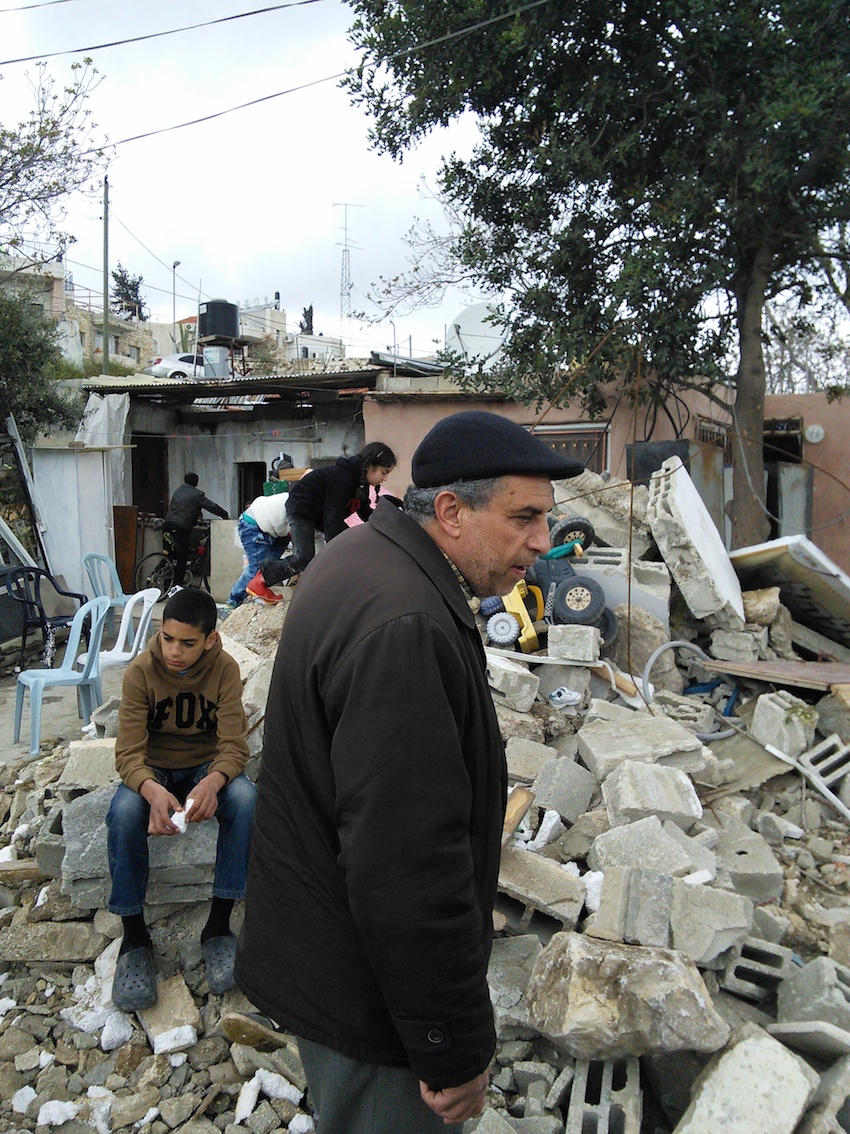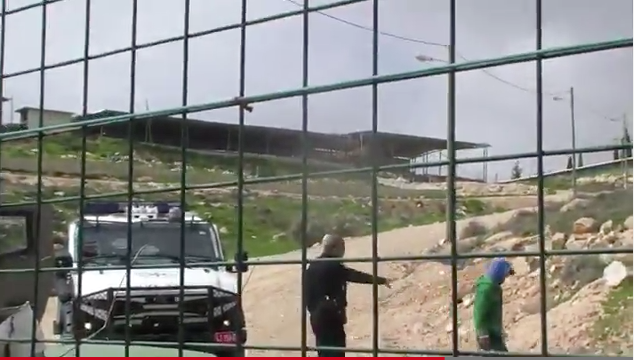Tag: Settlement expansion
-
Home demolition in Jerusalem: “They want our land. We need help to protect it.”
1st April 2015 | Jerusalem, Occupied Palestine Nureddin Amro and his brother Sharif Amro and their families were awakened at 5:30 am by over a hundred Israeli soldiers who came to demolish their home in the Wadi Al-Joz neighborhood of occupied East Jerusalem on Tuesday, March 31, 2015. Both men are blind. The brothers live with their…
-
Big turn out and high spirits at Wadi Fukin Land Day olive tree planting and protest
31th March 2015 | International Solidarity Movement, al Khalil Team | Wadi Fukin, Occupied Palestine On Monday March 30th about two hundred people commemorated Land Day in the village of Wadi Fukin. The protest, which involved planting olive trees was a response to Israeli theft of village land. After midday prayer around two hundred Palestinians and internationals…
-
Israeli forces arrest two shepherds in the South Hebron Hills
5th March 2015 | Operation Dove | South Hebron Hills, Occupied Palestine On the morning of February 28, Israeli police arrested two Palestinian shepherds as they grazed their flock in the valley of Umm Zeitouna near the Israeli settlement of Ma’on. In late morning the security chief of Ma’on settlement and Israeli soldiers arrived in Umm Zeitouna valley…



